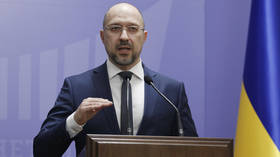Facebook blocks transparency tools as one third of world gets ready to vote

In a worrying development, Facebook is actively altering its code to prevent advertising transparency tools and plugins from functioning. This is especially troubling as major elections take place worldwide this year.
Tools from US investigative journalism site ProPublica, Mozilla and British group WhoTargetsMe have all encountered difficulties and become largely defunct in recent weeks as a result of consistent and ongoing changes to Facebook’s code. Specifically, these tools were designed to show the public exactly how they were being targeted by advertisers.
Also on rt.com Surveillance Guinea pigs? Facebook paying teens $20/month for unfettered access to mobile dataWhoTargetsMe co-founder Sam Jeffers believes Facebook is “deliberately obfuscating their code,” claiming that when transparency advocates alter their tools to adapt to Facebook’s new setup, the tech firm quickly alters the code, locking them out once again.
In addition, ProPublica also established a database of political ads from across the spectrum to better inform Facebook users about what to watch out for on their newsfeeds. However, the social media giant opted not to incorporate the database into its transparency initiatives.
Instead, Facebook launched its own database but its scope is far more limited than ProPublica’s: it is only available in three countries (US, UK and Brazil); it doesn’t include targeting data that explains why the ads were shown and to whom; and it has major blind spots in terms of US political advertising with gun rights, electoral reform groups, and anti-corruption initiatives all somehow failing to classify as political advertising.
“We regularly improve the ways we prevent unauthorized access by third parties like web browser plugins to keep people’s information safe,” Facebook spokesperson Beth Gautier told ProPublica in a statement.
“This was a routine update and applied to ad blocking and ad scraping plugins, which can expose people’s information to bad actors in ways they did not expect.”
Facebook has since cancelled the ads and said it was investigating why they weren’t flagged as political in nature. Its archive also doesn’t list how advertisers target according to racial, ethnic, religious, political and other sensitive attributes.
Further, the company announced on Monday that is expanding its transparency database to countries like Canada, Ukraine, Guatemala and Israel in the near future, along with many other countries, just in time for their respective impending elections. However, given the problems encountered by companies who already partnered with Facebook around political advertising transparency, faith that the Silicon Valley behemoth will fulfil its lofty obligations to the public is dwindling rapidly.
READ MORE: Spying backdoors? Apple FaceTime’s ‘INSANE’ eavesdropping bug sends users into frenzy
“This is very concerning,” said Senator Mark Warner (D-Va) who co-sponsored the Honest Ads Act, which would require Facebook to disclose “a description of the audience targeted by the advertisement.”
“Investigative groups like ProPublica need access to this information in order to track and report on the opaque and frequently deceptive world of online advertising,” Warner added.
Given that a third of the world’s population is due to vote this year in elections from across the EU, to India, Canada, Australia, South Africa and elsewhere, it seems an odd time for Facebook to suddenly perform a 180 on transparency initiatives.
Like this story? Share it with a friend!















